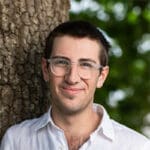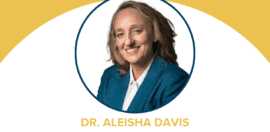Refusing to let anyone suffer in silence

22 August 2025 at 9:00 am
At just 12 years old, Jaimee Krawitz sat in a hospital bed with an eating disorder, surrounded by people who loved her, but no one knew what to say. It started slowly. Little habits. Food rules. A quiet voice in her head that became louder with time. That voice told her she wasn’t enough. That she had to shrink to be loved. That she had to be perfect to be seen.
She remembers the day it all came crashing down, sitting in a hospital bed, scared and confused, while her parents, teachers and doctors stood around her…no one knew what to say. No one knew how to help.
The silence was louder than the illness. And that silence nearly broke her. But it also planted a seed: a promise to make sure no other young person would suffer in silence the way she did. Now a registered counsellor and the founder of the Hide N Seek Foundation, Jaimee is leading a national movement to change how we talk about eating disorders. Her Schools Ambassador Program is training educators across VIC and TAS to recognise early warning signs and use supportive, trauma-informed language, a simple shift that could save lives.
Her work has won national recognition through JCA Shark Tank Australia and partnerships with brands like JSHealth, Monday Haircare, and FUNDAY Sweets, amplifying vital education into homes and classrooms.
Can you tell us a bit more about what the organisation is all about?
Hide N Seek Foundation was born from a deeply personal place: my own lived experience with an eating disorder.
At just 12 years old, I began silently struggling. I went to school every day surrounded by well-meaning teachers, coaches, and peers, but none recognised what I was going through. It wasn’t due to a lack of care, but a lack of knowledge. They didn’t know what signs to look for, what words to use, or how to help. That silence almost cost me everything.
I started Hide N Seek to make sure no young person ever has to face that kind of pain alone.
More than 1.1 million Australians are currently living with an eating disorder. Among 10–19 year olds, cases have surged by 86% since 2012. Despite the growing need, 75% of those affected don’t seek help (Hart et.al, 2011), often because they don’t know who to trust, or fear they won’t be understood.
Hide N Seek was created to change that, one school at a time.
Our flagship Eating Disorder Ambassador Program equips educators, coaches, well-being staff, and school leaders with trauma-informed, evidence-based training. We help them:
-
Recognise the early, often hidden signs of eating disorders
-
Communicate using safe, supportive, and non-judgmental language
-
Respond effectively and refer students to the right support
At the centre of each school’s approach is a designated Eating Disorder Ambassador—a trained, visible, and trusted adult that students know they can turn to. Because sometimes, all it takes is one person who truly sees them.
Hide N Seek is built on the belief that early intervention can change the course of a young person’s life. Language holds the power to either harm or heal, and the right words, spoken at the right time, can be life-saving. At its core, the organisation exists to ensure no young person ever feels invisible in their pain or alone in their struggle.
Take us through a typical day of work for you.
Everyday is different and that’s the beauty of being a founder. I like to start my mornings with some kind of movement, whether it’s a walk, a workout, or just taking a moment for myself. Once I’ve had my first coffee, I set my goals for the day and follow my calendar closely to stay on track.
My day is a mix of meetings, research, social media planning, responding to emails, and often reaching out to new contacts. I’m also a counsellor in private practice, so I typically see one or two clients each day. A big part of my role involves connecting with educators, medical advisors, and board members to ensure our work is collaborative and informed.
I work from a co-working space surrounded by other not-for-profits, which keeps me inspired and connected to a broader mission-driven community. It’s a busy schedule, but I’m so passionate about what I do that it never feels like work. Each hour brings something new, and I truly love that.
What is the biggest challenge you’ve encountered in your career, and how did you overcome it?
The biggest challenge I’ve faced in my career was learning to speak openly about my personal story. For a long time, I kept my experience with an eating disorder to myself. It felt too vulnerable, too raw. But I came to realise that if I wanted to create real, lasting change, I had to lead with honesty. That meant finding the courage to use my voice.
The first time I shared my story, something shifted. People didn’t just listen, they connected, resonated, and offered support. I began to build relationships with individuals who believed in the mission behind Hide N Seek. Those early conversations laid the foundation for a community that grew into a team, and eventually, an organisation.
Some of the mentors who once encouraged me to speak up are now part of my board. Finding my voice was not just a personal breakthrough, it was the catalyst for this entire movement. And to this day, it’s still the most powerful tool I have.
If you could go back in time, what piece of advice would you give yourself as you first embarked on your career?
If I could go back, I’d remind myself not to tie my worth to outcomes, whether success or setbacks. The work will evolve, and so will you. Embrace feedback without fear, treat mistakes as part of the learning curve, and don’t rush the process. Growth takes time, and you’re allowed to be a work in progress. Most importantly, protect your energy, trust your instincts, and don’t forget to enjoy the ride.
How do you unwind after work?
To unwind after work, I prioritise simple things that help me reset. Getting some fresh air, ideally near the ocean, is my go-to, and if time allows, I’ll head to the beach to clear my mind. I also love catching up with a loved one on the phone as it helps me shift gears and reconnect. In the evenings, you’ll often find me cooking with my partner, a friend, or family member, with music playing in the background. It’s those small, grounding rituals that help me recharge and show up fully the next day.
What was the last thing you watched, read or listened to?
I just finished reading Let Them by Mel Robbins — it’s probably one of the most impactful books I’ve ever read. Her perspective is incredibly empowering, and the simplicity of the “let them” mindset has really stuck with me. It’s a powerful reminder to let go of what you can’t control and stay focused on what truly matters.







